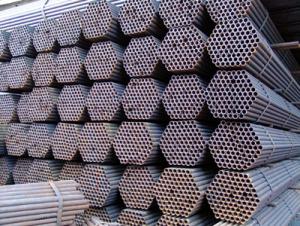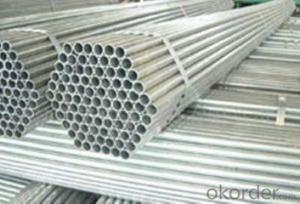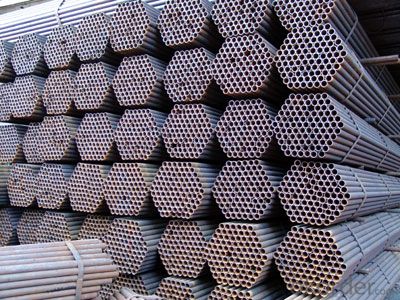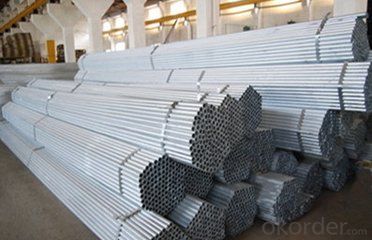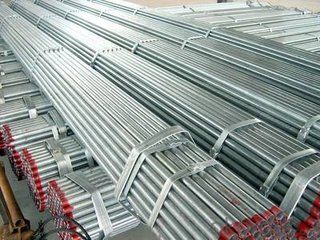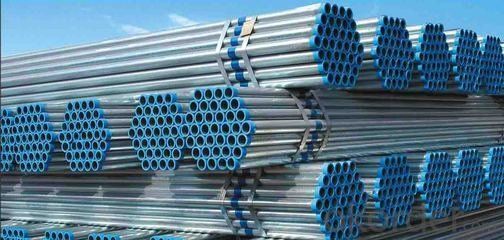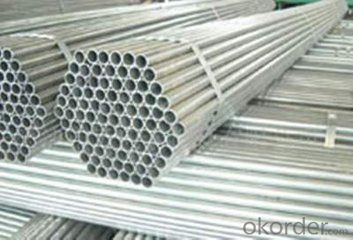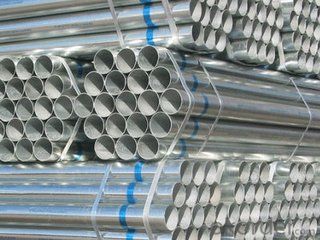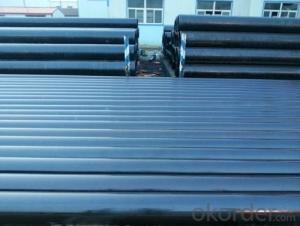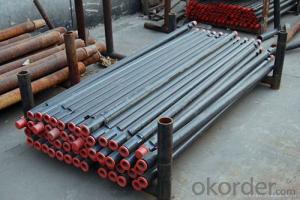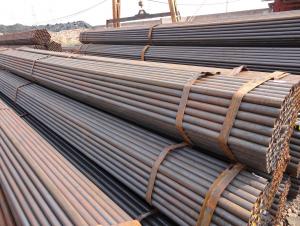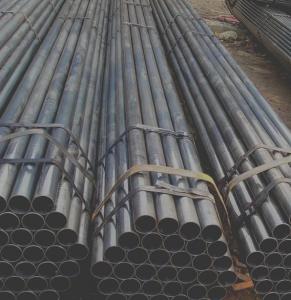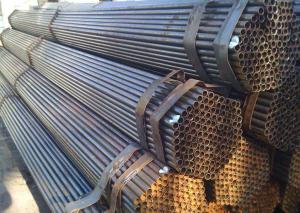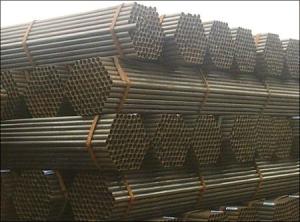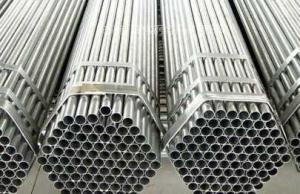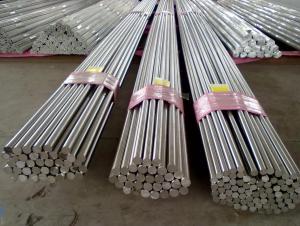Seamless A192-02 America Standard Steel Tube for Water Oil Gsa Conveying
- Loading Port:
- Tianjin
- Payment Terms:
- TT or LC
- Min Order Qty:
- 40 m.t.
- Supply Capability:
- 10000 m.t./month
OKorder Service Pledge
OKorder Financial Service
You Might Also Like
1、Structure of Seamless A192-02 America Standard Steel Tube :
Seamless A192-02 America Standard Steel Tube is to be used for conveying gas, water, and petroleum foroil and natural gas industries. And used for structural steel pies purpose. As the manufacturing process does not include any welding, seamless pipes are perceived to be stronger and more reliable. Historically seamless pipe was regarded as withstanding pressure better than other types, and was often more easily available than welded pipe.
2、Main Features of Seamless A192-02 America Standard Steel Tube :
• High strength
• Small inertia resistance
• Strong heat dissipation ability
• Good visual effect
• Reasonable price
3、Seamless A192-02 America Standard Steel Tube ,Specification:
Standard | GB, DIN, ASTM ASTM A106-2006, ASTM SPEC 5CT-2007 |
Grade | 10#-45#, 16Mn 10#, 20#, 45#, 16Mn |
Thickness | 8 - 33 mm |
Section Shape | Round |
Outer Diameter | 133 - 219 mm |
Place of Origin | Shandong, China (Mainland) |
Secondary Or Not | Non-secondary |
Application | Hydraulic Pipe |
Technique | Cold Drawn |
Certification | API |
Surface Treatment | factory state or painted black |
Special Pipe | API Pipe |
Alloy Or Not | Non-alloy |
Length | 5-12M |
Outer Diameter | 21.3-610mm |
Grade | 20#, 45#, Q345, API J55, API K55, API L80, API N80, API P110, A53B |
Standard | ASME, ASTM |
1) Material:20#(ASTM A 106/A53 GRB.API5LGRB,GB),45#,16Mn,10#.
2) Specification range:OD:21.3-610mm,WT:6-70mm,length:6-12m or according to the requirement of clients.
4) Surface:black lacquered,varnish coating or galvanized.
5) Ends:Beveled or square cut,plastic capped,painted.
6) Packing:bundles wrapped with strong steel strip,seaworthy packing.
4、Packaging & Delivery
Packaging Details: | seaworthy package,bundles wrapped with strong steel strip |
Delivery Detail: | 15-30days after received 30%TT |
5、FAQ of Seamless A192-02 America Standard Steel Tube :
②How about price?
Yes, we are factory and be able to give you lowest price below market one, and we have a policy that “ for saving time and absolutely honest business attitude, we quote as lowest as possible for any customer, and discount can be given according to quantity”,if you like bargain and factory price is not low enough as you think, just don’t waste your time.Please trust the quotation we would give you, it is professional one.
③Why should you chose us?
Chose happens because of quality, then price, We can give you both.Additionally, we can also offer professional products inquiry, products knowledge train(for agents), smooth goods delivery, exellent customer solution proposals.Our service formula: good quality+good price+good service=customer’s trust
SGS test is available, customer inspection before shipping is welcome, third party inspection is no problem.
6、 Seamless A192-02 America Standard Steel Tube : Images:
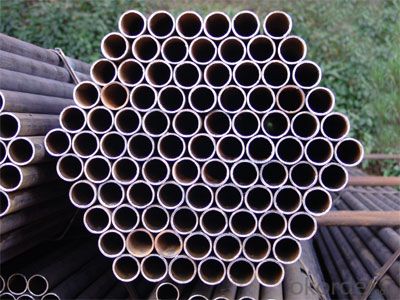
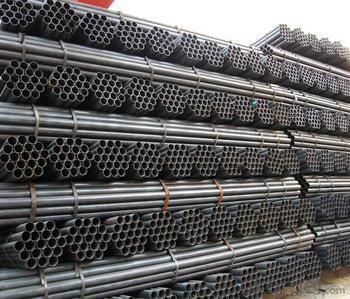
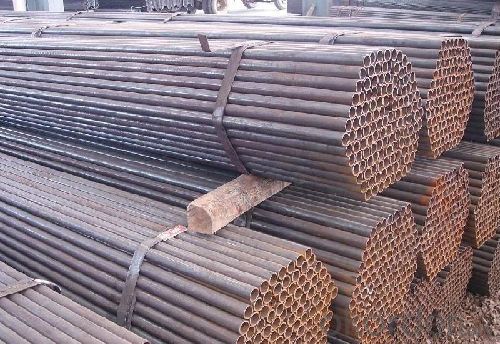
- Q: What is the role of steel pipes in the telecommunications industry?
- Steel pipes play a crucial role in the telecommunications industry as they are used for the installation of underground and overhead telecommunication cables. These pipes provide protection and support to the cables, ensuring their safety and longevity. Additionally, steel pipes are also used in the construction of communication towers and infrastructure, making them an essential component in establishing and maintaining reliable telecommunications networks.
- Q: Are steel pipes suitable for wastewater treatment facilities?
- Yes, steel pipes are suitable for wastewater treatment facilities. Steel pipes are commonly used in these facilities due to their high strength, durability, and resistance to corrosion. Wastewater treatment facilities typically handle corrosive and abrasive materials, and steel pipes are able to withstand these harsh conditions. Additionally, steel pipes are available in various sizes and configurations, allowing for easy installation and customization to meet the specific needs of the facility. Furthermore, steel pipes can be easily repaired or replaced if necessary, ensuring the longevity and reliability of the wastewater treatment system. Overall, steel pipes are a suitable choice for wastewater treatment facilities due to their strength, durability, corrosion resistance, and flexibility in installation and maintenance.
- Q: Can galvanized steel tubes simmer?
- I make the steel pipe, galvanized pipe and water conveying pipe material is the same, can be bent, specific to what to look at the furnace, can refer to a single material
- Q: How to descaling galvanized steel pipe?
- Galvanized steel tubes will not rust in principle.... Batch rust with weak acid water immersion, individual can use steel wire brush brush on it.
- Q: Can steel pipes be used for structural supports?
- Yes, steel pipes can be used for structural supports. Steel pipes are strong, durable, and have high load-bearing capacity, making them suitable for providing structural support in various applications such as buildings, bridges, and infrastructure projects.
- Q: What is the minimum wall thickness for steel pipes?
- The minimum wall thickness for steel pipes depends on various factors such as the pipe size, pressure rating, and intended use. However, as a general guideline, the minimum wall thickness for steel pipes is typically determined by industry standards and regulations, and it can range from a few millimeters to several inches. It is important to consult specific codes and standards relevant to the application to accurately determine the required minimum wall thickness for steel pipes.
- Q: Are the welded and galvanized tubes the same weight?
- The same specifications of welded pipe and galvanized pipe weight is not the same, the general welding tube weight, galvanized pipe light.
- Q: Can steel pipes be used for underground transportation tunnels?
- Yes, steel pipes can be used for underground transportation tunnels. Steel pipes are commonly used in the construction of underground tunnels for various purposes such as transporting water, gas, and sewage. They are known for their durability, strength, and resistance to corrosion, making them suitable for underground applications. Steel pipes can withstand the weight and pressure exerted by the surrounding soil and can be reinforced to ensure stability. Additionally, steel pipes can be manufactured in various sizes and lengths, allowing for flexibility in tunnel design. However, it is essential to consider factors such as soil conditions, load-bearing capacity, and potential environmental impacts when deciding to use steel pipes for underground transportation tunnels.
- Q: Are steel pipes recyclable?
- Yes, steel pipes are recyclable. Steel is a highly recyclable material and can be melted down and repurposed into new steel products, including pipes. Recycling steel pipes helps conserve natural resources and reduces the need for new steel production.
- Q: How are steel pipes used in the manufacturing of pulp and paper mills?
- Steel pipes are commonly used in the manufacturing of pulp and paper mills for various purposes. They are primarily utilized for transporting water, chemicals, and steam throughout the mill's processes. Steel pipes are also employed for structural support, such as in the construction of storage tanks, conveyors, and equipment frames. Additionally, they are used for providing compressed air, ensuring efficient operation of machinery and processes. Overall, steel pipes play a crucial role in facilitating the smooth functioning and efficient production of pulp and paper mills.
Send your message to us
Seamless A192-02 America Standard Steel Tube for Water Oil Gsa Conveying
- Loading Port:
- Tianjin
- Payment Terms:
- TT or LC
- Min Order Qty:
- 40 m.t.
- Supply Capability:
- 10000 m.t./month
OKorder Service Pledge
OKorder Financial Service
Similar products
Hot products
Hot Searches
Related keywords
